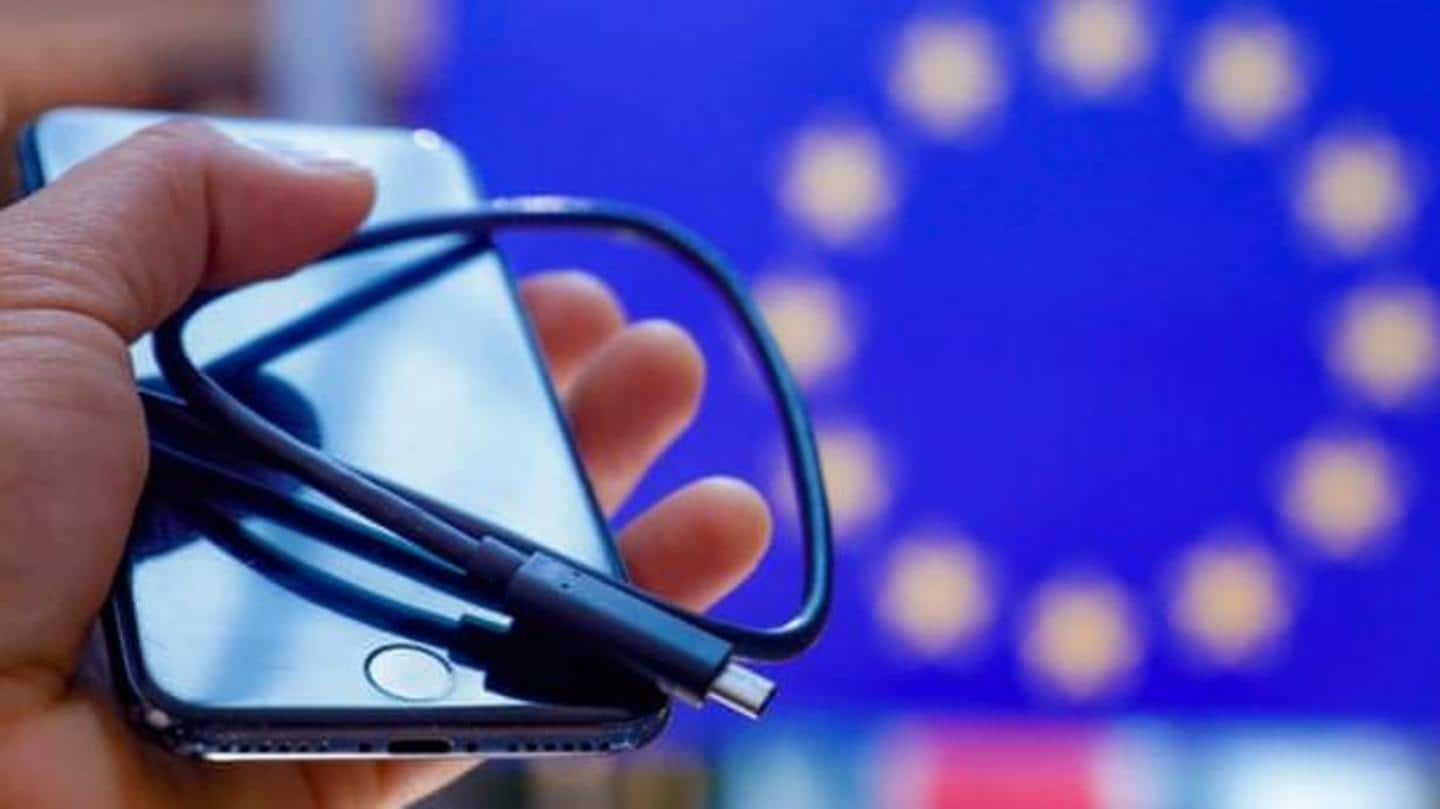
How will Europe's 'common charger' rule impact Apple iPhone design
What's the story
In a landmark decision, European Union lawmakers have agreed on legislation that will make USB-C charging ports a mandatory requirement in all smartphones sold in Europe by fall of 2024.
The new rule will also be applicable to other electronic devices, including tablets, digital cameras, and headphones, among others.
EU's initiative to introduce a "common charger" is aimed at cutting down e-waste.
Context
Why does this story matter?
After years of deliberation, the EU has reached an agreement on the "common charger" issue. The Union is convinced that this change would have a major impact on the region's e-waste.
The rule will also force Apple to switch from its proprietary Lightning connector and adopt USB-C for future iPhones.
It will be interesting to see how companies will react to this rule.
Legislation
The law will be in place by autumn 2024
EU lawmakers agreed to amend the Radio Equipment Directive to make USB-C ports mandatory for wired charging in future smartphones sold in the region.
The agreement was reached following negotiations between different EU bodies. It still needs the approval of the EU parliament and council.
The parliament, via a press release, stated that the law will be in place "by autumn 2024."
Quotes
'Common charger a reality in Europe'
About the decision to standardize mobile charging ports, European parliament's rapporteur Alex Agius Saliba said, "Today we have made the common charger a reality in Europe!"
"European consumers were frustrated long with multiple chargers piling up with every new device. Now they will be able to use a single charger for all their portable electronics," he added.
Aim
The legislation will make life easier for consumers: EU
EU's attempt to implement the "common charger" law has been in the making for a decade. The main goal of this initiative is to cut down on e-waste and make it easier for customers.
The Union hopes that in the future, phones and other gadgets will not need a charger in the box, as consumers would already have the accessories at their disposal.
Information
EU estimates cut down of around 11,000 tonnes of e-waste
According to EU estimates, the legislation could save consumers €250 million per year on "unnecessary charger purchases." It is also estimated that around 11,000 tonnes of e-waste can be reduced annually when the law comes into force.
Impact
Apple will be the worst hit by EU's decision
EU's new rule will not impact Android smartphone manufacturers as almost all of them already use USB-C.
Notably, the worst hit will be Apple which still uses Lightning port on iPhones.
"In two years' time, if Apple wants to sell their products within our internal market they have to abide by our rules, and their device will have to be USB-C," said Saliba.
Go wireless?
What options does Apple have?
Europe is an important market for Apple. It sold 56 million iPhones in the region in 2021. The company can tackle the USB-C rule in two ways.
The simple option would be to replace the Lightning connector with USB-C in future iPhones. All new iPads anyway come with USB-C ports.
Apple may also remove the charging port altogether and provide only MagSafe wireless charging.
Criticism
Critics say that the law will stifle innovation
The new legislation proposed by the EU is not without criticism. Apple had earlier pointed out that the law would create more e-waste as its Lightning accessories will become redundant.
Others have pointed out that the law will stifle innovation and de-incentivize manufacturers from developing improved charging technology.
EU has denied this and said that it will update the law according to technological advancement.
Laptops
EU has not yet decided on a standard for laptops
An aspect of the law that is yet to be settled is the charging standard for laptops. Therefore, the deadline for laptop makers is 2026.
"We don't have that technological certainty on a standard which can cater to laptops between 100 and 240 watts," said Saliba.
"Our line of reasoning was to extend the deadline for laptops to have a standard that is clear."